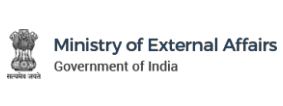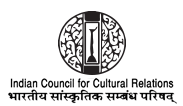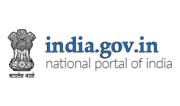New Delhi
MEA Official Spokesperson (Shri Vishnu Prakash): Good evening and a very warm welcome.
You are aware that the Prime Minister will be leaving for New York next week to participate in the High Level Segment of the 66th UN General Assembly Session. Foreign Secretary would like to brief you about the upcoming visit of the Prime Minister of India. I would also like to introduce my colleague Mr. Pavan Kapoor to the right of Foreign Secretary, who is the Joint Secretary for UN affairs.
Foreign Secretary will be making an opening statement and thereafter we will be happy to take your questions.
Foreign Secretary (Shri Ranjan Mathai): Thank you.
The Prime Minister Dr. Manmohan Singh will be visiting New York from 22nd to 26th of September to participate, as you have just heard, in the High Level Segment of the 66th Session of the UN General Assembly.
His delegation would include the External Affairs Minister, the Principal Secretary to the Prime Minister, NSA, myself, some senior officials, besides a large media component.
The current UNGA Session commenced on the 13th of September. This year, the General Debate including the addresses by the Heads of Delegation will take place from the 21st to the 30th of September. PM is scheduled to address the General Debate in the morning of 24th of September.
PM is also likely to hold bilateral meetings with a number of visiting Heads of State and Government during his stay in New York.
The present UN General Assembly Session is taking place at a time of continuing global economic and financial uncertainties, with food and fuel prices at their peak. The impact is being felt most severely by developing countries which are struggling to alleviate poverty and improve the living standards of its people. As a key emerging major economy, which is playing a constructive role in contributing to global economic recovery, we will reaffirm our commitment at the UN, to continue working with other countries and agencies, to further global economic and financial stability, as well as to foster strong, sustainable and balanced economic growth.
The Middle East and North Africa are witnessing socio-political upheaval and the situation is in a flux. During our membership of the Security Council since the 1st of January 2011, we have been underlining the need to resolve conflicts through negotiations and diplomatic means rather than the use of force. We will continue to encourage political and diplomatic processes for solutions to the problems of member nations.
In continuation of the initial remarks I made, we would continue to focus attention of the UN on poverty eradication as the foremost developmental challenge and the need to foster and sustain inclusive growth as a primary requirement for poverty eradication. It is imperative that the international community joins hands to ensure that every effort is made to attain the Millennium Development Goals by 2015. India would call for greater mobilization of resources, including honouring of ODA commitments, and policy action for attaining the MDGs. We will also actively engage with UN Member States on human rights issues and to strengthen the UN’s humanitarian operations.
India’s priorities in the current session of the UNGA would include, continuing our efforts for reform of the UN with a view to creating an equitable system that is reflective of contemporary realities. We feel that unless comprehensive reform of the UN Security Council is undertaken, the process of UN reforms would only be piecemeal and incomplete. We along with the G-4 and other like-minded countries would continue to work proactively, to maintain the momentum for UN Security Council reforms.
India remains a votary of a robust UN role in maintenance of international peace and security, including through its peacekeeping operations and political processes. India has remained steadfast in its commitment to universal, non-discriminatory and total nuclear disarmament. Consistent with our concerns on terrorism and clandestine proliferation, we will emphasize the immediacy of effective measures to deny terrorists, possible access to WMD material. We will also be actively participating in the UN high level event on Nuclear Safety and Security which will be held on the 22nd of September.
The recent terrorist attack in New Delhi has once again served as a reminder of the constant threat posed by terrorism to the security of democratic societies and wellbeing of its citizens. We are currently chairing the Security Council’s Committee on Counter-Terrorism, established by Resolution 1373 adopted in the wake of the September 2001 attacks. The Committee is organizing a special meeting on the 28th September 2011, which is the tenth anniversary of that resolution. We will reiterate the need for strong international cooperation and collective action against terrorism. We have time and again insisted on full compliance by all states of their obligations under various UN Resolutions and mechanisms on counterterrorism. We will also push for an early adoption of the Comprehensive Convention on International Terrorism (CCIT) that will provide a global normative framework against terrorism.
As I said earlier, the External Affairs Minister, Shri S. M. Krishna, will also be in New York to participate in this High Level Segment. He will represent India at a series of high-level events including:
1. The Annual Commonwealth Foreign Ministers’ Meeting on the 22nd of September;
2. The Ministerial Meeting of BRICS ( Brazil, Russia, India, China and South Africa) on the 23rd of September which he will be indeed hosting;
3. The 35th Annual Meeting of the Foreign Ministers of the G-77 on 23rd of September;
4. An IBSA Ministerial Meeting also on the 23rd of September;
5. A Meeting with the Extended Troika of the Rio Group on 26th of September; and finally
6. The Sixth Round of India-Gulf Cooperation Council Political Dialogue on the 27th of September.
PM’s visit to New York for this 66th UNGA session, at this important juncture, would enable India’s voice to be articulated and heard at the august international body, which would also see the presence of a large number of world leaders. It will also enable him to exchange views with his counterparts both in formal and informal settings.
Thank you.
Question: What are the bilaterals on the sidelines? Could you shed some light on that?
Foreign Secretary: We are still working on the list. The requests are coming in even as we speak. Some notes are being exchanged both here and in New York. So, we do not have the absolute final list right now. As soon as it is ready, we will make it known.
Question: May I know the position of India on the request of the Palestinian people to be accepted as a state in the next General Assembly?
Foreign Secretary: I would like to say by way of background that India’s commitment to the Palestinian cause is long established. India was the first non-Arab country to recognize the State of Palestine on the 16th of November, 1988 following the Algiers Declaration of the 15th of November of that year. While we remain hopeful that the talks and negotiations would resume leading to a comprehensive peace process for final resolution of the Middle East conflict, India will support the Resolution on Palestine seeking membership of the UN.
Question: Any possibility of bilateral meeting at any level, Prime Minister level or Foreign Minister level, with China?
Foreign Secretary: As I said, the list is still under preparation. But to my knowledge this has not been proposed. There will be not a purely bilateral but in the context of BRICS, as I mentioned, on the 23rd of September there will be a Ministerial meeting which our External Affairs Minister will be hosting. So, in that context there would be an engagement.
Question: Will the Prime Minister be meeting President Obama?
Foreign Secretary: As I understand it, President Obama will be leaving New York before our Prime Minister arrives. So, I do not see the possibility.
Question: Mr. Mathai, what is the update on the UN Security Council reforms? Is the Prime Minister likely to be involved in a G4 Heads of Government informal meeting? I know the Foreign Ministers will be meeting. What is the latest? Where do we go from here?
Foreign Secretary: I think the latest on that is that as of now it is planned as a Foreign Minister level engagement between the G4. The four Ministers will take stock of where they are. There was a consultative meeting held among senior officials about a month back. What the Foreign Ministers will do is to review the outcome of that senior officials meeting, and then collectively decide what are the steps needed to be taken, and what is the direction in which to go. But I will ask my colleague to add a little bit to this.
Joint Secretary (UNP) (Shri Pavan Kapoor): Not too much to add except to say that, as Foreign Secretary said, the Director-Generals of the G4, as the senior officials or the sherpas as they are called, met in August in Japan. They have had a pretty extensive discussion to take stock of where things are but they felt that now the situation is right for Ministers to review the steps because they had, as you know, in February agreed to go for an outreach process, and now they feel it is time again for the Ministers to meet on the margins of UNGA. And that is what they plan to do and then decide the further steps.
Question: Sir, you just spoke about the India chairing the meeting of the UN Committee on Counter-terrorism. What really do we expect of this meeting apart from what you say that we are going to press for the Comprehensive Convention on Counterterrorism? Apart from that, what are the real expectations from this meet?
Foreign Secretary: The idea is to once again refocus attention of the international community on the dangers posed by terrorism. If we can push, as I said, for this comprehensive convention, we think that will be of great assistance in creating an international normative framework which is to say that all states do agree on certain basic steps that have to be taken to combat terrorism. We are, as I said, in the chair of the Security Council Committee on Counterterrorism. This being the tenth anniversary of a very major terrorist event, of course we face terrorism on a much more regular basis, it is to refocus attention. It is to once again seek an international consensus which can help us all move forward.
Question: We actually know this but I want you to say this for the sake of our cameras - our stand on Transitional Council in Libya
Foreign Secretary: There was a detailed statement which we worked on, which has been released only this morning. There was immediacy to it because in the context of the UN General Assembly Session which is already under way, there was a question of the acceptance of the credentials of the delegation of the Transitional National Council of Libya, and we have extended support to acceptance of their credentials. India has already been in contact with the Transitional National Council both in Benghazi and in Cairo. Our Charge d’affaires to Libya who is currently based in Tunis has formally established contact with the TNC Mission in Tunis. We are extending humanitarian assistance of about one million dollars through the UNOCHA to Libya and another two million of assistance is being processed as we speak. So, I think that is where we are. We have in fact accepted their credentials.
Question: Is there a meeting planned of the nuclear safety under UN Secretary-General’s Office next week, and are you going to attend it as a Sherpa?
Foreign Secretary: There is the UN High Level Event on Nuclear Safety. Yes, we will be attending it.
Question: Sir, I know about what sidelines situation is which you have mentioned. But is there anything specifically expected with Pakistan, any special meetings or any progress to the expected with India?
Foreign Secretary: Progress we are working on in the bilateral context and you are all familiar with the visit of the Foreign Minister here at the end of July. That is a separate issue. What we have heard is that the Prime Minister of Pakistan is in fact not going to New York for the UNGA, and that the Pakistani delegation is likely to be led by their Foreign Minister. As of now I have no information on anything being planned in terms of a meeting with the Pakistani side.
Question: Sir, we have been talking about poverty alleviation and financial crisis in the UNGA. India itself is facing price rise for a long time, Europe is under depression situation, and America is facing unemployment. Do you have any specific prescription for the UNGA to work on?
Foreign Secretary: I think what we are going to do is to make use of the Prime Minister’s address to, as I said in some detail, call for collective measures where they are feasible and to refocus the attention of the world on these critical issues of poverty eradication through inclusive growth. The attempt to achieve the Millennium Development Goals I think is very much part and parcel of this whole business of poverty eradication.
Question: Coming back to Libya, about the recognition of the rebels’ Government there, what is the position of India? Will there be some discussion with other countries about the recognition of their government?
Foreign Secretary : We recognize states and not governments. As I said, in the context of participation by the TNC in the UNGA we have extended our support to acceptance of their credentials. We have established contact with the TNC on our own. In terms of discussions with other countries, at the moment I do not know if there is anything planned. There was a major conference in Paris which was convened by President Sarkozy and Prime Minister Cameron. Our Minister of State for External Affairs participated in that meeting and established contact with the other countries and discussed matters relating to Libya. There is one addition to that.
Joint Secretary (UNP): As a follow-up to the Paris meeting there is also a high-level meeting in the UN on the 20th of September on Libya.
Foreign Secretary: And we will participate in that.
Question: At what level, Sir?
Foreign Secretary: Probably at this stage it will be me because I will be the first to arrive there.
Question: Staying on the PM’s visit, there was a common BRICS position on this but China and Russia recognize TNC. Is there any conflict of opinion within the BRICS group on this issue?
Foreign Secretary: Not that I know of any conflict. As I have explained in some detail, we have also established contact with the TNC ourselves. We have held consultations with the Brazilians and the South Africans, both of them. And we continue to talk to them about the schedule which we have in mind. So, I think there is really no conflict there.
Question: Sir, would India be lobbying hard for Chinese support for India’s permanent membership in UNSC in this UNGA Session?
Foreign Secretary: As I said, the first thing is that the G4 countries will meet among themselves and work out a common plan of action as to what next. Once the four Ministers meet among themselves, we will decide what are the next steps after that.
Question: Any meeting planned of the SAARC Foreign Ministers? Normally every year they meet on the sidelines of UNGA.
Joint Secretary (UNP): You are very right. There is always an informal meeting of SAARC Foreign Ministers. This year the Bhutanese Government who are the current chair of SAARC decided that since there is a SAARC Summit coming up very soon and the SAARC Foreign Ministers will be meeting before that, there is no need for such a meeting. However, we have just been told that the Maldivian Foreign Minister, the Maldivians who are now talking over the chair of SAARC, might hold an informal meeting on the margins of UNGA. So, it is still possible but it is not certain.
Foreign Secretary: I will just add to that. The External Affairs Minister paid a visit to the Maldives at the end of July during which a number of discussions were held particularly focusing on the forthcoming summit. If the schedule does work out for the other SAARC countries and the Maldivians take this initiative, we will be happy to participate in it. But, as I said, the schedule has to be worked out. Ultimately this is being looked at in New York because it is changing from hour to hour - the requests and what is possible and what is not possible.
Question: What are the chances of the short resolution on the UN Security Council reforms being put to vote in the UNGA?
Foreign Secretary: As I said, the decision on whether to go ahead, what steps to take has still not been made. That is the reason this meeting of the four Ministers acquires a particular importance because we have to take stock of where we are. As my colleague mentioned, the discussion which was held in Tokyo some weeks ago did reveal that there is much that needs to be done. We need to collectively reflect on what is the best way forward. After the last February decision, a very major outreach was begun. We understand that there was a very substantial support that was forthcoming from the countries which were contacted. So, perhaps they would once again take note of that and then decide what to do next.
Question: Sir, in your meeting with the Chinese side even at the Foreign Ministers' level, will the issues of intrusion in Ladakh and the Vietnam issue figure?
Foreign Secretary: As I said, the schedule is for a meeting of the group BRICS in which we are trying to in fact provide a particular economic focus to this grouping so that they can collectively deal with the agenda which we all agree on in terms of economic engagement and include more strongly we might say aligning our positions in global economic fora. Beyond that, I do not think there would be an occasion for specific issues.
Question: I have one question on counterterrorism since of course India is heading the UN Committee. Given the fact that India has constantly been talking about the Haqqani Network and in the context of the Afghan Taliban talks, Pakistan’s manoeuvring and the recent attacks on the US Embassy in Kabul which is attributed again to Haqqani brothers, does that in any way kind of change India’s position here, give you more strength to talk on the issue, or to raise the issue?
Foreign Secretary: I do not think the strength of our position is contingent on any single incident or any individual group. Certainly on the attack which took place in Kabul there is more than one view as to who is actually responsible for it. But our position is more general. It is more seeking a global consensus on how to move forward.
Official Spokesperson: Thank you.







